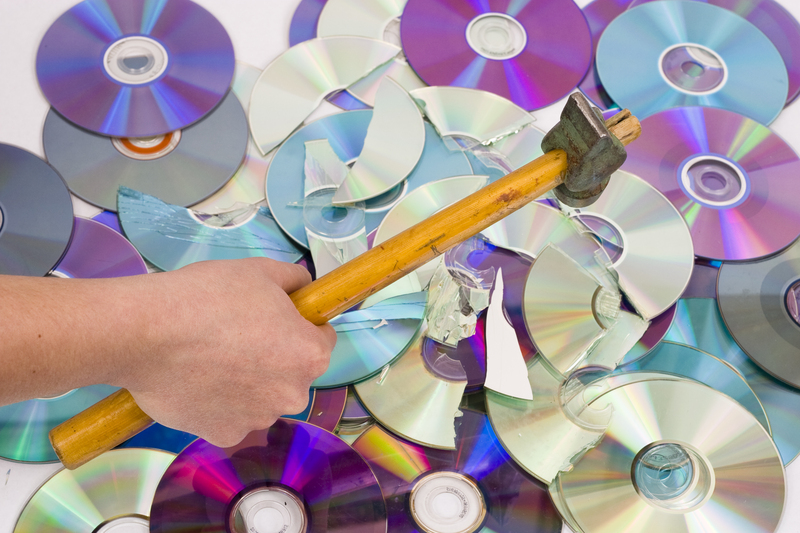The Impact of Metal Recycling on Natural Resource Preservation
In today's rapidly evolving world, the need for sustainable practices has reached a critical point. A key component in this endeavor is the recycling of metals. The impact of metal recycling extends far beyond reducing landfill waste; it plays a crucial role in preserving our natural resources. This article explores the various ways metal recycling contributes to the conservation of our planet's resources.
Understanding Metal Recycling
Metal recycling involves collecting and processing scrap metals to produce new metal materials. This process is not only environmentally friendly but also economically beneficial. Common metals that are recycled include aluminum, steel, copper, and iron. Each type of metal has its own specific recycling process, but all aim to achieve the same goal: reduce the need for new raw materials and conserve energy.
How Metal Recycling Works
To fully appreciate the significance of metal recycling on resource preservation, it is essential to understand the recycling process:
- Collection: Scrap metal is collected from various sources such as construction sites, automotive industries, and consumer goods.
- Sorting: The collected metals are sorted based on type and quality. Advanced technologies like magnetic separation are used for effective sorting.
- Processing: The sorted metals are shredded or melted down. For instance, aluminum cans are shredded into small pieces to increase surface area and speed up the melting process.
- Melting and Purification: The metals are melted in large furnaces and then purified to remove any impurities.
- Solidifying and Shaping: The purified metal is then solidified into sheets, coils, or bars for industrial use.

Environmental Benefits of Metal Recycling
Reduction in Energy Consumption
Recycling metals consumes significantly less energy than producing new metals from ores. For example, recycling aluminum saves up to 95% of the energy required to produce aluminum from bauxite ore. This drastic reduction in energy usage helps decrease the demand on non-renewable energy sources and minimizes greenhouse gas emissions.
Decrease in Pollution
By minimizing the need for new metal extraction, recycling reduces air and water pollution. Mining new materials generates substantial waste and pollutants. In contrast, recycling metals involves fewer chemical processes, resulting in cleaner air and water.
Preservation of Natural Habitats
The need for mining operations, often destructive to natural habitats, is reduced through recycling. Less mining activity means fewer disruptions to ecosystems, helping preserve biodiversity and maintain ecological balance.
Economic Advantages of Metal Recycling
Cost-Effective Resource Use
Recycling metals is generally more cost-effective than extracting and processing virgin materials. Businesses can save money, and consumers benefit from potentially lower product prices. Additionally, as raw material prices continue to fluctuate, recycled metals provide a steady alternative, ensuring more predictable costs.
Job Creation
The metal recycling industry is a significant contributor to employment. Jobs are created in collection, sorting, processing, and selling recycled metals, supporting both local and national economies. As demand for sustainable practices grows, so does the potential for new job opportunities within this sector.
Challenges in Metal Recycling
Quality and Contamination Issues
One of the primary challenges in metal recycling is maintaining the quality of recycled metals. Contamination can degrade metal quality, making it harder to recycle efficiently. Innovations in sorting and purification technologies are continually improving the ability to handle these issues.
Market Fluctuations
The recycling industry faces volatile market conditions. Changes in commodity prices for metals can impact the profitability and feasibility of recycling programs. Maintaining a balance between supply and demand is crucial for a stable recycling market.

The Future of Metal Recycling
Given the importance of metal recycling in conserving natural resources, future advancements in technology and policies are pivotal. Increased public awareness along with governmental and corporate support can drive further innovations, making recycling processes even more efficient.
Technological Innovations
Emerging technologies, such as enhanced sorting mechanisms and more efficient smelting processes, are set to revolutionize metal recycling. These advancements will further reduce energy consumption and improve the quality of recycled metals, strengthening their role as a sustainable resource.
Policy and Legislation
Governments can play a vital role by implementing policies that encourage recycling practices. Subsidies for recycling initiatives and stricter regulations on waste management could uplift recycling rates across the globe. Such policies would support industries while promoting ecological sustainability.
Community and Industry Participation
The success of metal recycling heavily relies on collaborative efforts between communities and industries. Public education campaigns about the impact of recycling can enhance participation rates. Industries can contribute by committing to recycle-friendly operations and using recycled metals in their products.
Conclusion
As we face increasing environmental challenges, the importance of sustainable practices becomes more pronounced. Metal recycling stands as a beacon of hope in our battle to preserve natural resources. Not only does it reduce pollution and energy consumption, but it also supports economic stability and fosters job creation. Embracing and expanding metal recycling can lead to a more sustainable future, ensuring that our planet's resources are conserved for generations to come.